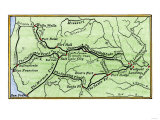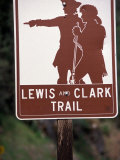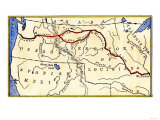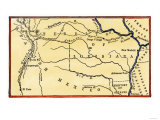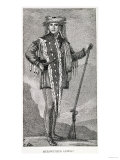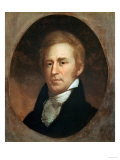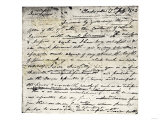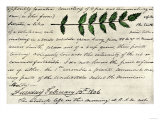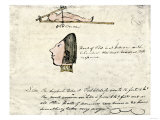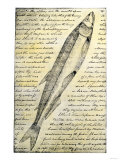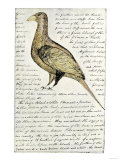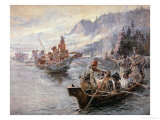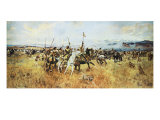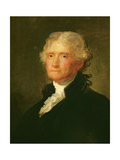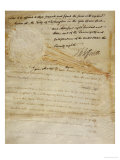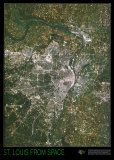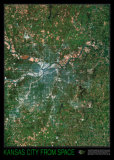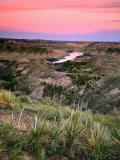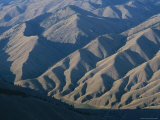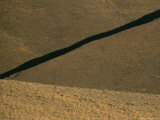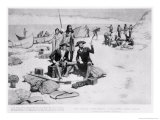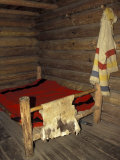|
|
Lewis and Clark Expedition Posters, Prints, Charts & Maps
for the social studies classroom and theme decor in office or studio.
|
social studies > history > LEWIS & CLARK < explorers < geography < notable men
|
|
Thomas Jefferson to Meriwether Lewis - “The object of your mission is to explore the Missouri river, & such principal stream of it as by it's course and communication with the waters of the Pacific ocean whether the Columbia, Oregon, Colorado or any other river may offer the most direct & practicable water communication across this continent for the purposes of commerce.” Library of Congress, Transcript
|
|
|
|
|
Meriwether Lewis
b. 8-18-1774; Albemarle County, Virginia
d. 10-11-1809; Grinder's Stand, TN
Lewis suffered from malaria.
Meriwether Lewis, a soldier and personal secretary to President Thomas Jefferson, is best known as the co-leader of the Corps of Discovery Expedition to explore the Louisiana Purchase “to trace the Missouri River to its source, searching for a waterway to the Pacific Ocean, and to learn the character of the country”. Lewis, appointed by Jefferson, observed, collected, and described hundreds of plant and animal species, conducted basic ethnographic studies of the peoples encountered, and laid the groundwork for a trade economy in the young United States vast new interior territory.
• Meriwether Lewis: A Biography
|
|
|
|
William Clark
b. 8-1-1770; Virginia
d. 9-1-1838; St. Louis, MO
William Clark was born into a family of ten children and was the only male member not to participate in the Revolutionary War as he was too young. His much older brother, George Rogers Clark, was a General in the Continental Army.
In 1786 the Clark family moved to Kentucky and William Clark joined the Kentucky Militia (1789), and then the regular army, to protect settlers from Indian attacks. In 1803 Meriwether Lewis requested Clark share command of the new Corps of Discovery. After the expedition Clark was appointed superintendent of Indian affairs in the Louisiana Territory in 1807, and Governor of the Missouri Territory in 1813.
• Wilderness Journey: The Life of William Clark
|
|
|
|
|
|
|
|
|
• botany posters
• birds posters
• aquatic life posters
|
• Native Americans posters
• biomes posters
|
| Thomas Jefferson to Meriwether Lewis
“... Your observations are to be taken with great pains & accuracy, to be entered distinctly & intelligibly for others, as well as yourself ... The commerce which may be carried on with the people inhabiting the line your will pursue, renders a knolege (sic) of those people important. You will therefore endeavour to make yourself acquainted <with> as far as a diligent pursuit of your journey shall admit, with the names of the nations & their numbers ...”
• Other objects worthy of notice will be the soil & face of the country it's growth & vegetable productions, especially those not of the US.
• the animals of the country generally, & especially those not known in the US. ...
A further guard would be that one these copies be on the paper of the birch, as less liable to injury from damp than common paper. ..."
|
|
|
|
|
|
William Clark - Sunday, May 5, 1805
“In the evening we saw a Brown or Grisley beare on a sand beech, I went out with one man Geo Drewyer & Killed the bear, which was verry large and a turrible looking animal, which we found verry hard to kill we Shot ten Balls into him before we killed him, & 5 of those Balls through his lights This animal is the largest of the carnivorous kind I ever saw we had nothing that could way him, I think his weight may be stated at 500 pounds [227 kilograms].... we had him skined and divided, the oile tried up & put in Kegs for use.”
Later - Merriweather Lewis - “I find the curiosity of our men with respect to this animal (Grizzly Bear) is pretty much satisfied.”
Captain Clark: August 4, 1806
Mosquitoes excessively troublesome - so much so that the men complained that they could not work at their skins for those troublesome insects. And I find it entirely impossible to hunt in the bottoms, those insects being so numerous and tormenting as to render it impossible for a man to continue in the timbered lands, and our best retreat from those insects is on the sand bars in the river, and even those situations are only clear of them when the wind should happen to blow, which it did today for a few hours in the middle of the day. The evenings, nights, and mornings they are almost unendurable, particularly by the party with me, who have no biers, to keep them off at night, and nothing to screen them but their blankets, which are worn and have many holes.
The torments of those mosquitoes and the want of a sufficiency of buffalo meat to dry - those animals not to be found in this neighborhood - induce me to determine to proceed on to a more eligible spot on the Missouri below, at which place the mosquitoes will be less troublesome and buffalo more plenty. Wrote a note to Captain Lewis, informing him of my intentions, and tied it to a pole which I had stuck up in the point. At 5 P.M., set out and proceeded on down to the second point, which appeared to be an eke situation for my purpose. [Killed a porcupine.] On this point the mosquitoes were so abundant that we were tormented much worse than at the point. The child of Charbonneau has been so much bitten by the mosquitoes that his face is much puffed up and swollen. |
|
|
|
|
|
|
|
|
|
|
|
|
The Missouri Breaks in central Montana is a badlands area of rock outcroppings, steep bluffs and grassy plains on either side of the Missouri River. Lewis & Clark passed through the breaks in 1805; the area was designated a National Monument in 2001.
|
|
|
|
|
|
|
Arid landscape seen from Lemhi Pass, Continental Divide
National Geographic - Lewis and Clark crossed the Divide at the Lemhi Pass to enter the arid landscape of the Far West.
|
|
|
|
Lewis and Clark at the mouth of the Columbia River, 1805, from 'Collier's Magazine', May 12th 1906,
Frederic Remington
|
|
|
|
Charbonneau and Sacagawea's Quarters
|
|
|
|
|
|
| Free Lewis & Clark poster and study guide set for qualified institutions (one request per school/5th & 6th grade preference)- Monticello.org |
|
|
| Lewis & Clark study materials (free & low cost) from U. S. Geological Survey
more FREE/low cost resources
|
|
|
previous page | top
|
|
I have searched the web for visual, text, and manipulative curriculum support materials - teaching posters, art prints, maps, charts, calendars, books and educational toys featuring famous people, places and events - to help teachers optimize their valuable time and budget.
Browsing the subject areas at NetPosterWorks.com is a learning experience where educators can plan context rich environments while comparing prices, special discounts, framing options and shipping from educational resources.
Thank you for starting your search for inspirational, motivational, and educational posters and learning materials at NetPosterWorks.com. If you need help please contact us.
|
|
|
|











